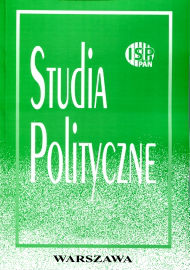Myśl polityczna Bractwa Muzułmańskiego
The political thinking of the Muslim Brotherhood
Author(s): Hassan Ali JamsheerSubject(s): Politics / Political Sciences
Published by: Instytut Studiów Politycznych PAN
Keywords: The Muslim Brotherhood; Hasana al-Banna; Sajjid Qutub; Abu al-A’ala al-Maududi; Islam
Summary/Abstract: The 19th century and the first half of the 20th century was a period of development for modern Arab political thinking. For some time after the end of World War II, what dominated several Arab countries was a doctrine of socio-political Arab socialism which was to have a significant impact on the adoption of a radical and populist socio-economic programme. A rival trend to this ideology was the trend dubbed Muslim fundamentalism, postulating a return to the very roots of Islam, as represented by the organisation known as al-Ikhwan al-Muslimin; the Muslim Brotherhood. Established in Egypt at the end of the 1920s, it was led first by Hasana al-Banna (1906–1949), and then Sajjid Qutub (1906–1966). In the face of severe repressive measures against its members and supporters, the Brotherhood gave rise, for the first time in Arab political thinking, to questions regarding the nature of the Islamic society and the Islamic nation, the umma. After all, the organisation's members were persecuted by the very authorities who enjoyed the wide support of the citizenship. The negative aspect of umma inclined the persecuted toward raising the issue of an 'unbelieving’ society (takfir) and the return of decadence (jahiliyyah). This issue was addressed by Abu al-A’ala al-Maududi (1903–1979) and his concept of the ‘unbelieving’ society and its jahiliyyah have been adopted by Islamists. By the same token, conditions have emerged for forming, around the new leadership, a radical direction in Arab-Islamic political thinking, i.e. one oriented toward an ‘utter dissociation from reality’.
Journal: Studia Polityczne
- Issue Year: 2009
- Issue No: 23
- Page Range: 265-282
- Page Count: 18
- Language: Polish

